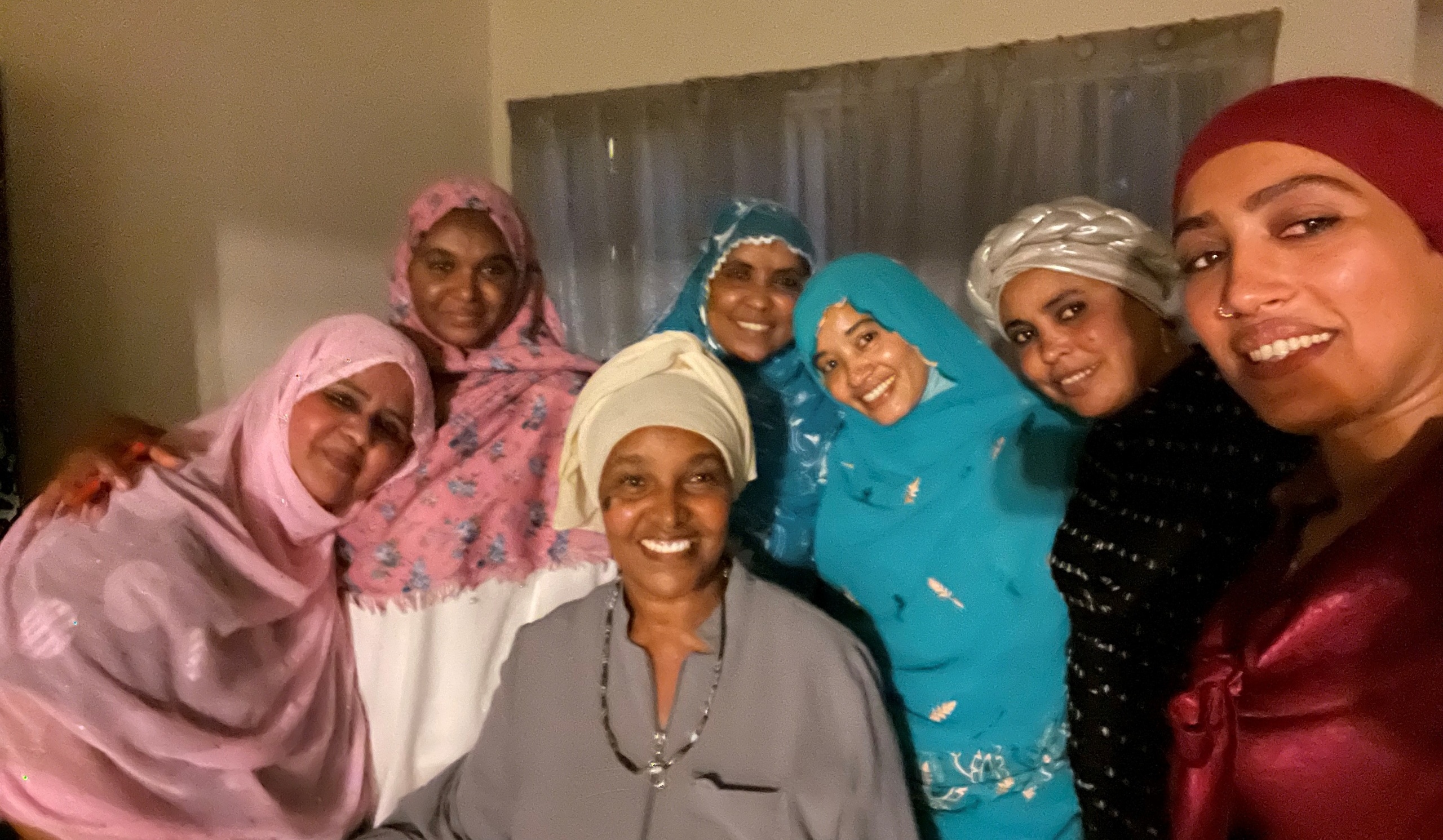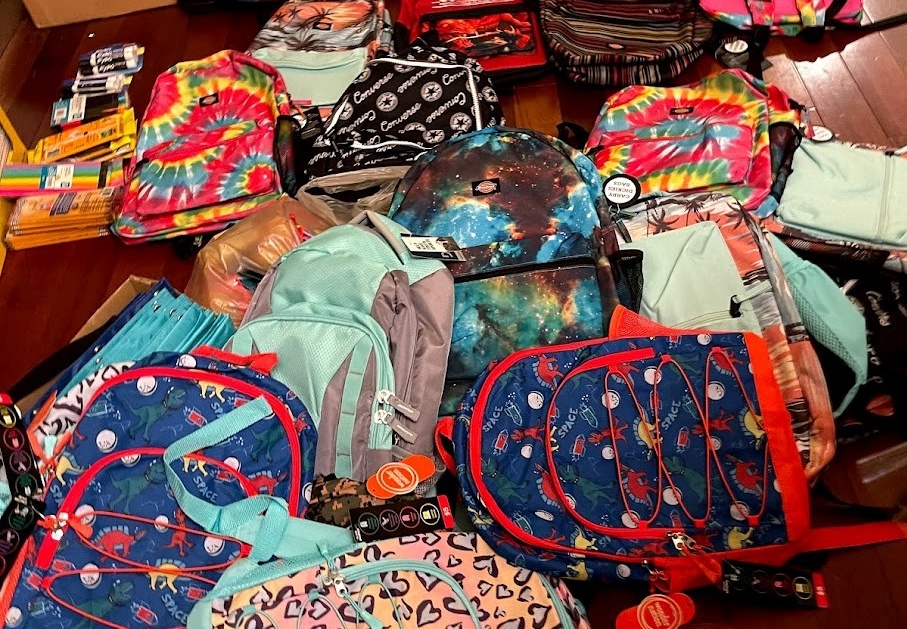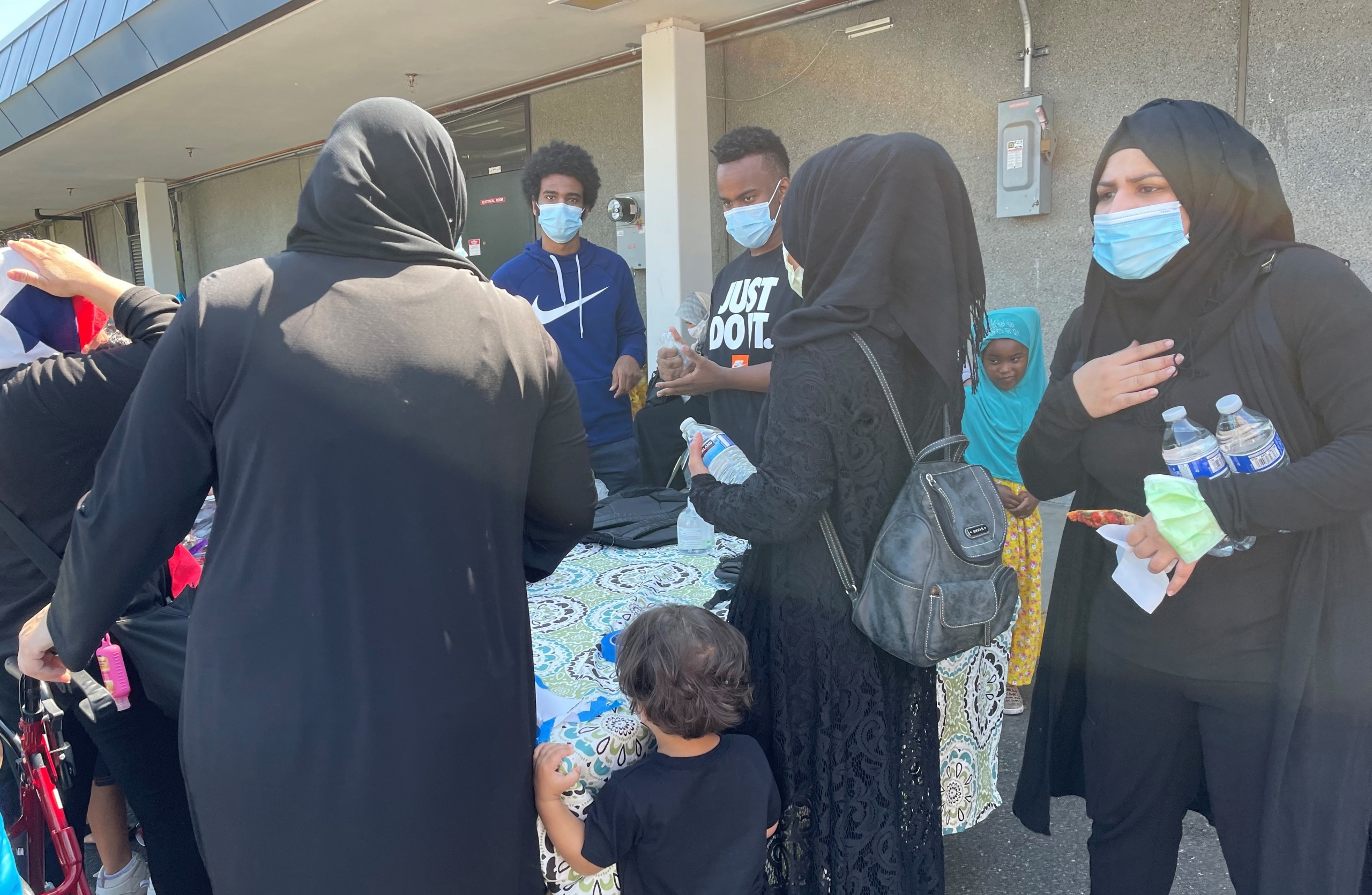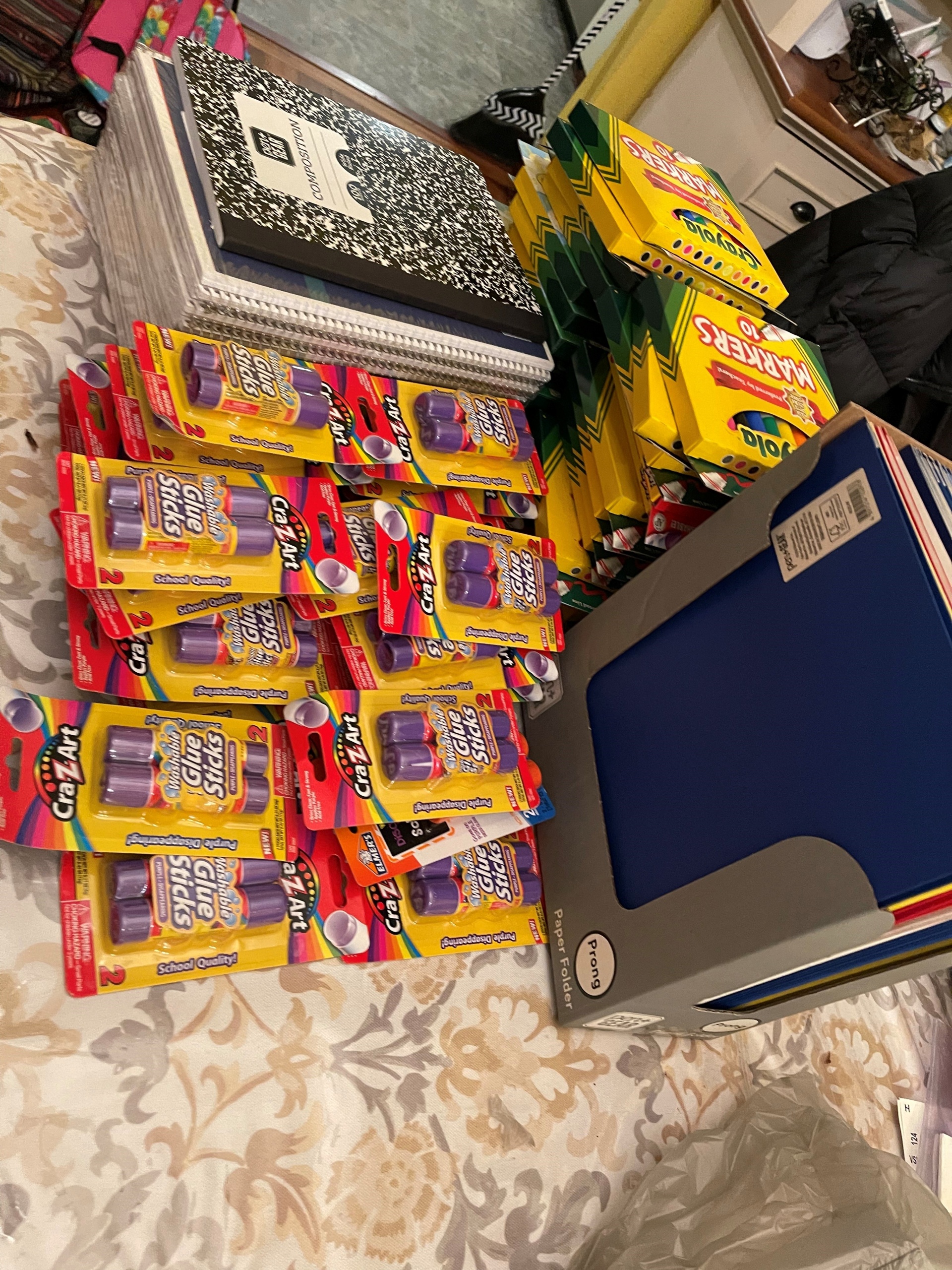
Saadia Hamid (third from left, in grey), with parents of the Happy Family Happy Community.

Supplies provided to students in the Immigrant Family Empowerment for Return to In-Person Learning project.

Two youth leaders, parents, and children of HFHC during one of the in-person events of the Immigrant Family Empowerment for Return to In-Person Learning project.

Supplies provided to students in the Immigrant Family Empowerment for Return to In-Person Learning project.
Happy Family Happy Community (HFHC) provides new immigrants from East Africa, Afghanistan, and Iraq in South King County and South Seattle reliable resources about local issues like education and hosts a space for new immigrants to discuss their challenges and organize their communities. For their Rapid Resource Fund project, Immigrant Family Empowerment for Return to In-Person Learning, HFHC provided information, basic needs, and community to immigrant families and students to help with the transition from at home learning to in-person in the Fall and throughout the school year. Through gatherings and mindful activities, HFHC brought together a group of families that meet regularly on Zoom to share experiences and information about the educational system.
In September 2021, Saadia Hamid, HFHC’s executive director, shared that their project was going well despite the shifts needed from COVID-19. HFHC initiated their project with outreach in the community on back-to-school support throughout Kent, Auburn, Tukwila, and South Seattle. Saadia also shared that for this project, HFHC reached out to East African and Afghan “newcomers” (immigrants). This came at a time when the United States had just removed military support in Afghanistan, and when the United States — South Seattle more relevantly — was expecting an influx of Afghan refugees. HFHC had previously worked with immigrant families from East Africa and Afghanistan and partnered with organizations like Live Well Kent, the Eritrean Health Board, and Horn of Africa for outreach in this project.
Additionally, HFHC staff enlisted ten high school youth to support the project, providing them stipends for their contributions. For their Immigrant Family Empowerment for Return to In-Person Learning project, HFHC was able to host:
- 16 Zoom information meetings on back-to-school and safety measures
- 10 game nights with 30 families
- Four back-to-school events where 200 students received school supplies
- Three in-person information sharing events
HFHC’s Impact
Projects like this are incredibly relevant to incoming immigrants. HFHC’s impact in this project went far beyond helping immigrant families with returning to in-person learning. As Saadia puts it “if you take a plant from a sunny place and put it in a different climate, it takes work to make it flourish the way it did before.” Providing school supplies is just one of the many steps to this work. The meetings were a space to receive information from educational experts and for intergenerational connections to reduce stress, build mental reserves, and build new relationships. Additionally, families and children received intergenerational social emotional support through periodic group meetings that continue beyond this Rapid Resource Fund project.
Saadia expressed interest in growing HFHC’s outreach capacity to connect with people early so they don’t go without resources — some of the newcomers she connected with had been in the region for two years with no access to information. Factors like language access and navigating a new school system during the pandemic led to their children losing out on schooling and other opportunities. Saadia explained the lack of access and knowledge is further exacerbated by the pandemic and prevents immigrant children from continuing or starting their schooling.
As an example, a family of five (a mother and her four boys) immigrated to the Road Map region with the oldest, a 19 year old boy. The high school system refused to accept him as a student and with no resources or knowledge the student lost two years. HFHC’s intervention led to the student enrolling to complete his GED and led to a lasting trusting relationship with this family. The mother is now an active member of Happy Family Happy Community and plays a part in the outreach of newcomers and building the community.
Looking Ahead
HFHC plans to continue their support of students and families through the school year. Their next initiative is to continue outreach and support to newcomers as well as provide early learning and health training. With additional funding from Best Starts for Kids, Saadia, an early learning educator with years of experience, has created trainings on the area of early learning, health, and youth development (with a focus on social and emotional wellbeing), to develop immigrant families’ capacities in their own homes, help them find jobs in the early learning space, and help them in starting their own childcare businesses.
HFHC is also able to offer immigrant newcomers courses on displacement and resilience, continuous education, nutrition, parenting in the mainstream culture, and orientation for incoming immigrants. The trainings are offered to East African immigrants in Tigrinya, Amharic, and Oromo. Saadia is working on offering this training to all newcomers to the region. Through this initiative, HFHC will also continue to partner with other nonprofits like Living Well Kent and Horn of Africa, Iraqi community center, Mother Africa and other service providers in the region to support the work. HFHC has accomplished a lot in their Rapid Resource Fund project and with additional funding, they would be able to continue compensating participants and staff and also scale their work — like finding a physical space to host orientation, training, and other events.
Posted in: Other